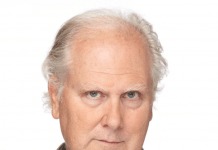 You might have noticed that many of the stories I write link to blog posts elsewhere, and some even have a “Found via [source]” link at the bottom. This is because it’s a core value of news blogging that if you find a story somewhere else, you link back and so share some of your readers with them—at least in part because if you do, they’re likely to reciprocate and share their readers with you next time.
You might have noticed that many of the stories I write link to blog posts elsewhere, and some even have a “Found via [source]” link at the bottom. This is because it’s a core value of news blogging that if you find a story somewhere else, you link back and so share some of your readers with them—at least in part because if you do, they’re likely to reciprocate and share their readers with you next time.
But it seems that the “professional” press continues to have trouble with this idea. On GigaOM, Mathew Ingram looks at a kerfuffle that erupted the other day when TechCrunch writer MG Siegler broke the news of Apple buying app-discovery service Chomp, and then the Wall Street Journal reported the story (doing its own legwork to talk to an Apple source) without ever mentioning Siegler’s scoop. Siegler wrote an angry tirade about it, which has prompted some on-line discussion of the matter.
Ingram writes:
I’ve argued before that I think this failure to link is a crucial mistake that mainstream media outlets make, and also an issue of trust: since the Journal must know that at least some people saw the Siegler post, why not link to it? The only possible reason — apart from simply forgetting to do so — is that the paper would rather try to pretend that it was the first to know this information (and it also apparently has a policy of not linking if a WSJ reporter can independently confirm the news).
I suspect it may also have to do with the entrenched culture at these media conglomerates reflecting a disdain for mere “bloggers”, be they the professional variety like TechCrunch or not. Perhaps they don’t think of that as “real” journalism. It’s just a guess on my part, of course, and I don’t have any kind of proof.
Ingram posts a Twitter discussion he had with a number of other writers on the linking question, in which there is considerable disagreement about to what extent news agencies should be obligated to credit the original breakers of stories. It’s a question that will probably be asked more and more frequently in coming years, if bloggers continue to break stories first.
I can certainly understand how frustrating it would be to be the very first on the scene with a major story and then get left out entirely when a major news agency comes in and reports the story. But on the other hand, I wonder just how much this sort of behavior will really make the Wall Street Journal lose trust. It has to have a lot larger readership than TechCrunch, which means few of its readers will even know what the Journal did (unless they noticed the kerfuffle afterward), and even among those who did I wonder how many will care.
Regardless, down here in the blogs we think linking to people is simply polite if nothing else, and we’ll continue to do it.
































